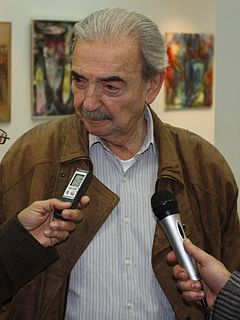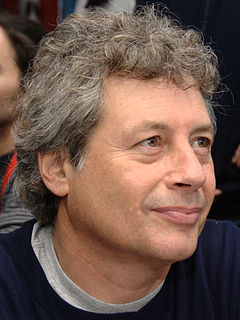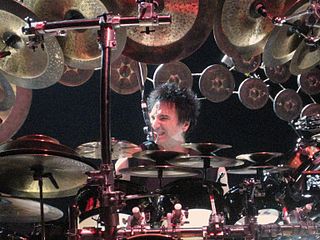A Quote by Ernest Hemingway
Poor Faulkner. Does he really think big emotions come from big words? He thinks I don’t know the ten-dollar words. I know them all right. But there are older and simpler and better words, and those are the ones I use.
Related Quotes
For we let our young men and women go out unarmed in a day when armor was never so necessary. By teaching them to read, we have left them at the mercy of the printed word. By the invention of the film and the radio, we have made certain that no aversion to reading shall secure them from the incessant battery of words, words, words. They do not know what the words mean; they do not know how to ward them off or blunt their edge or fling them back; they are prey to words in their emotions instead of being the masters of them in their intellects.
I don't know that I would say words are more political now, particularly after Donald Trump has come into office. I will say that what I notice is that people pay more attention to the words that politicians use. They really want to understand the full nuance, the connotative meanings of those words.
Look, words are like the air: they belong to everybody. Words are not the problem; it's the tone, the context, where those words are aimed, and in whose company they are uttered. Of course murderers and victims use the same words, but I never read the words utopia, or beauty, or tenderness in police descriptions. Do you know that the Argentinean dictatorship burnt The Little Prince ? And I think they were right to do so, not because I do not love The Little Prince , but because the book is so full of tenderness that it would harm any dictatorship.
Happy," I muttered, trying to pin the word down. But it is one of those words, like Love, that I have never quite understood. Most people who deal in words don’t have much faith in them and I am no exception – especially the big ones like Happy and Love and Honest and Strong. They are too elusive and far to relative when you compare them to sharp, mean little words like Punk and Cheap and Phony. I feel at home with these, because they’re scrawny and easy to pin, but the big ones are tough and it takes either a priest or a fool to use them with any confidence.
There are some people that aren't into all the words. There are some people who would have you not use certain words. Yeah, there are 400,000 words in the English language, and there are seven of them that you can't say on television. What a ratio that is. 399,993 to seven. They must really be bad. They'd have to be outrageous, to be separated from a group that large. All of you over here, you seven. Bad words. That's what they told us they were, remember? 'That's a bad word.' You know bad words. Bad thoughts. Bad intentions.
I really think kids should understand that music is like learning the alphabet. You put small letters together to make words, and then you use these words to create a story, but with music. And they really need to know how to mix and match those letters and how to come up with something that is really interesting, or speak in metaphors as poets do to show us something maybe we didn't think about.






































